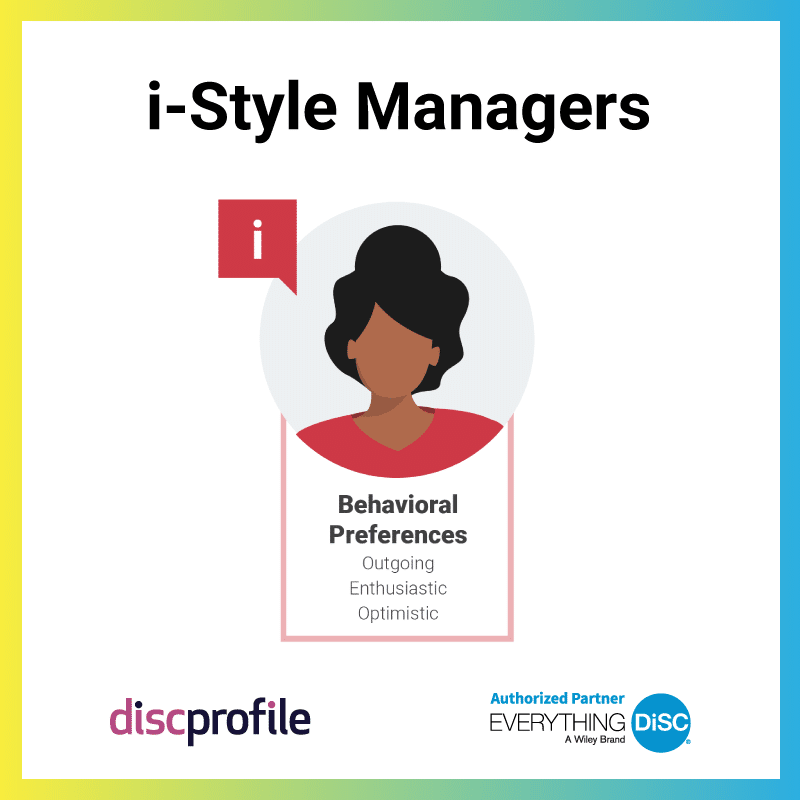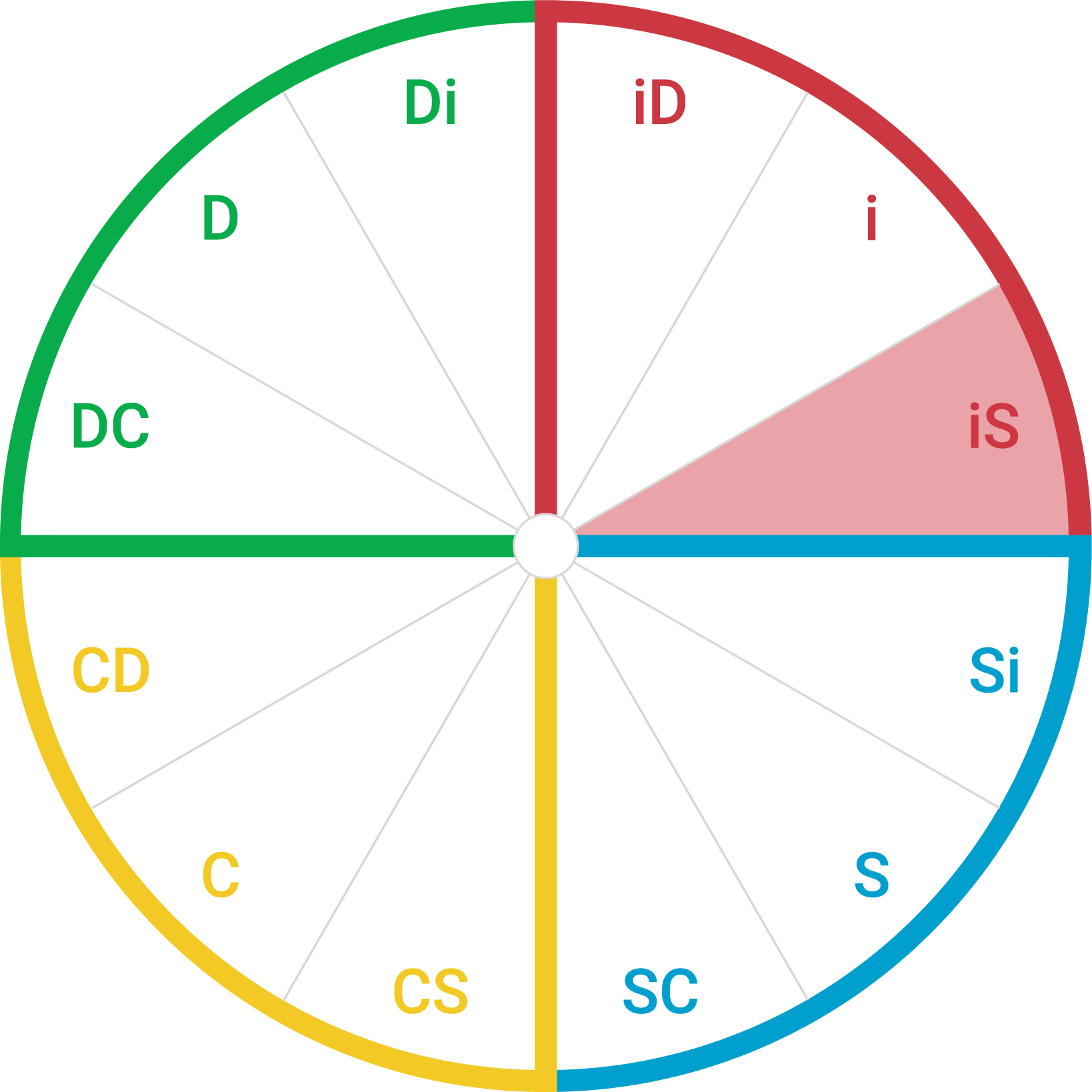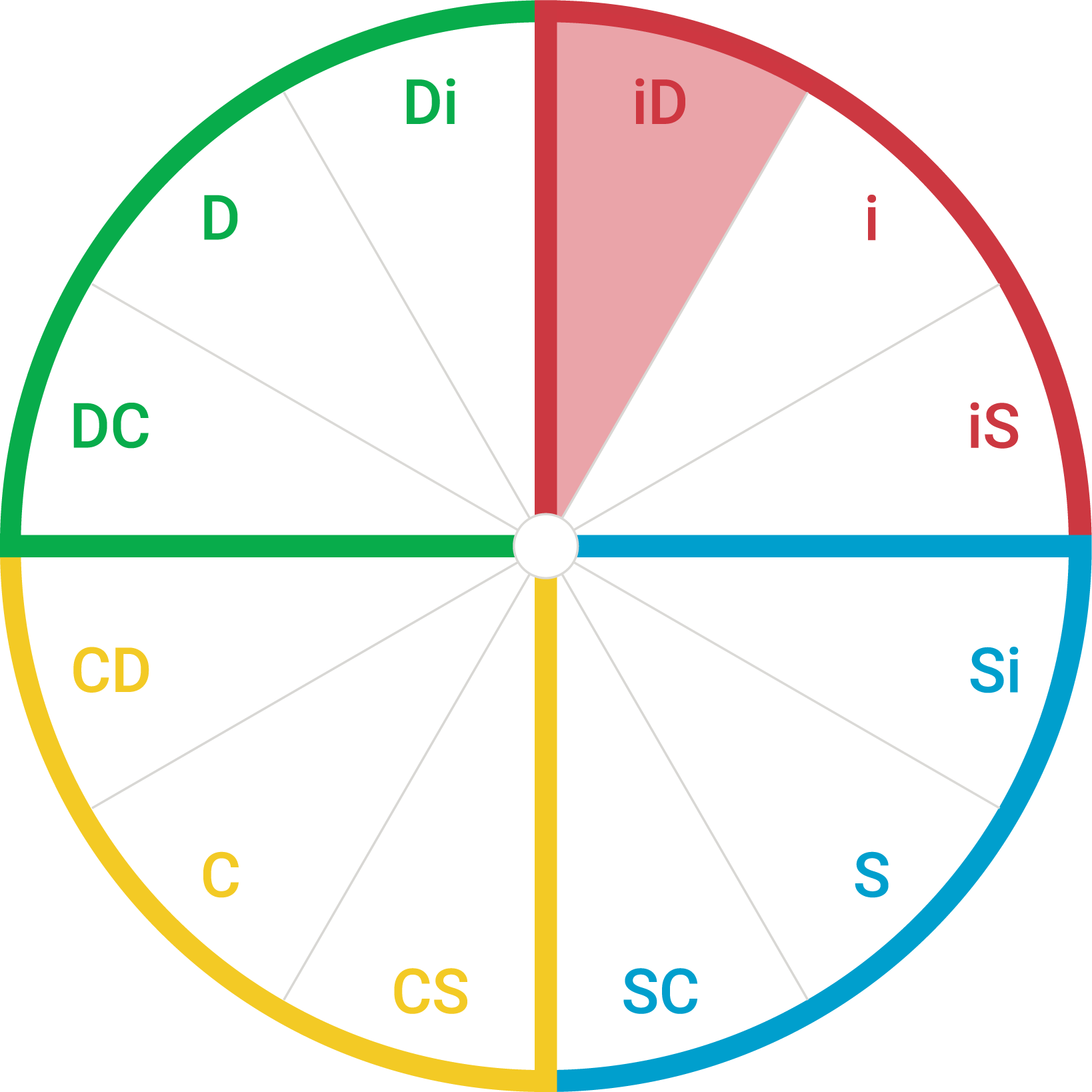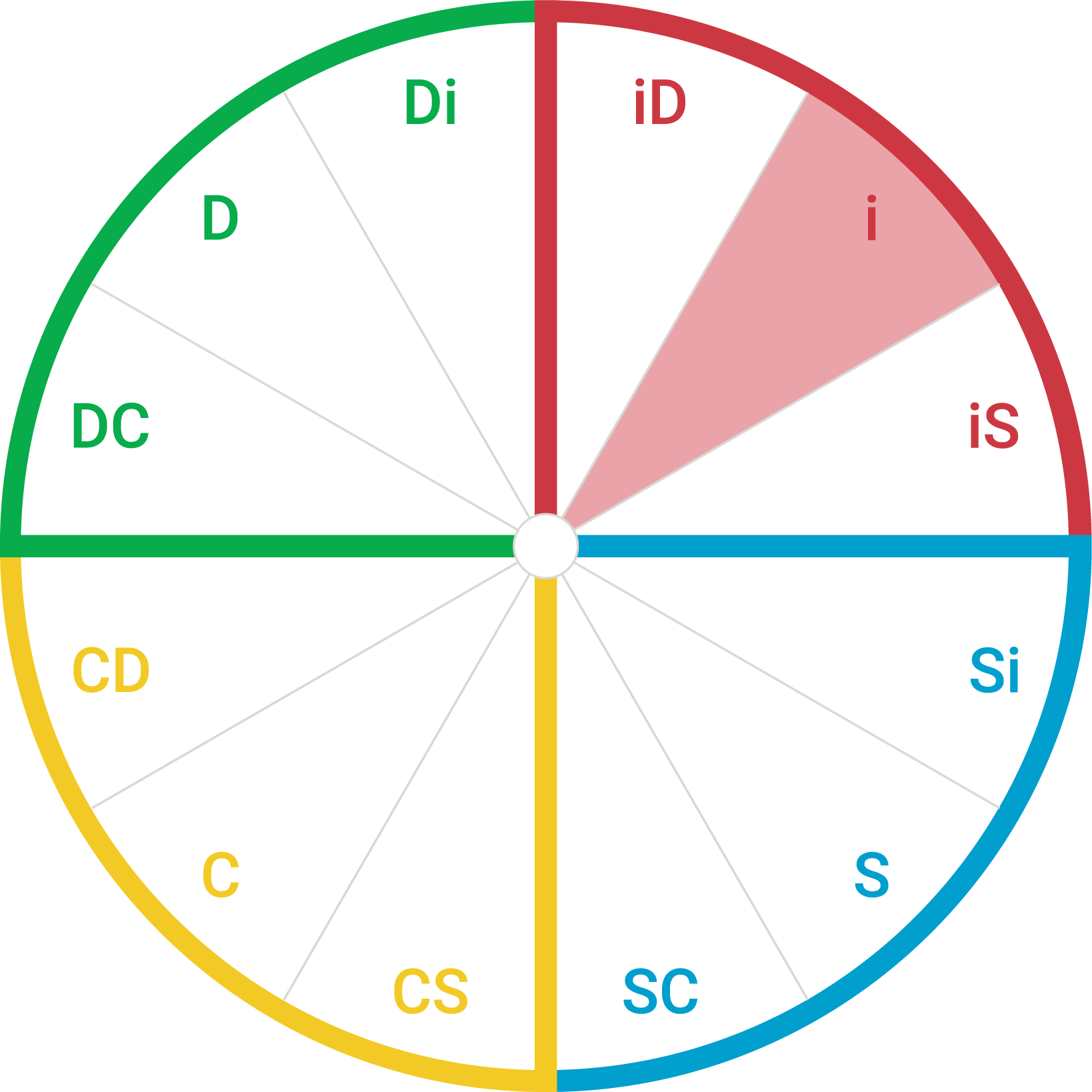
i style
i is for influence
People with the DiSC i style personality are usually outgoing, lively, and enthusiastic. They seek new experiences rather than routine, and care a great deal about their relationships with others.
What does the i in DiSC mean?
The i in the Everything DiSC® model stands for influence. People with i styles present a high-spirited and lively demeanor. They are often optimistic, warm, and social. People with DiSC i styles are more likely than other styles to shape their environments by influencing or persuading others.
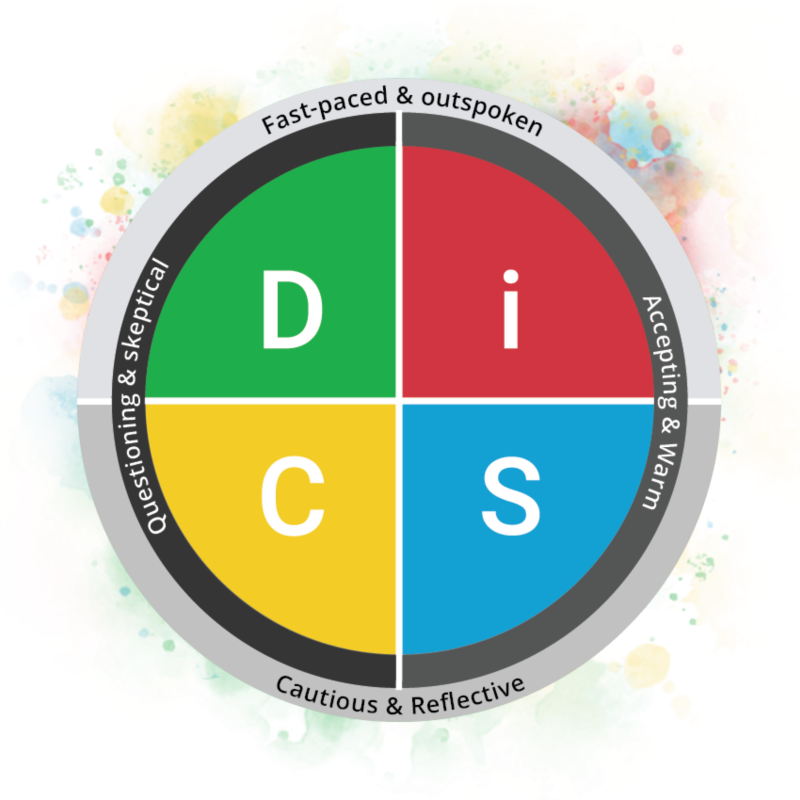
How do you get typed as an i style in DiSC?
The DiSC model, at its foundation, is two-dimensional, measuring:
- pace (from fast-paced and outspoken to cautious and reflective)
- agreeableness (from questioning and skeptical to accepting and warm)
The i-type personality is both fast-paced and outspoken, and also accepting and warm.
These two scales are just a starting place for the Everything DiSC assessment. This assessment will tell you not only your main DiSC style (D, i, S, or C) but which of the 12 sub-styles best represents you and how strongly you align with those traits.
.png)
Dot placement
There's a lot of variety within each of the four main DiSC styles because human personality is so wonderfully varied! People with i styles share many high-level traits, but each i-style person manifests the style differently. The dot placement on your Everything DiSC profile will help you discover your unique place on the DiSC map.
For example, you might be strongly inclined to the iD style with your dot appearing on the far edge of the circle near the border between the i and D quadrants. Or you might be slightly inclined toward the i style with your dot appearing closer to the middle and centered in the i quadrant.
Learn more: DiSC® dot and priorities explained
Why is the i lowercase?
The small i in DiSC helps you distinguish Everything DiSC® and DiSC® Classic products from other assessments based on the DISC model. Learn what makes Everything DiSC different.
i-style managers
i-type managers are often warm and encouraging. They enjoy developing positive relationships with their team members. They are expressive communicators who like getting people excited about their goals and ideas.
Explore the strengths of i-style managers and the unconscious assumptions they tend to make in their day-to-day work. Read more on the learning hub.
